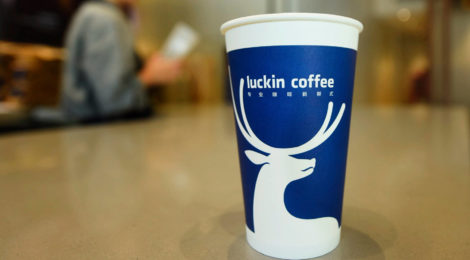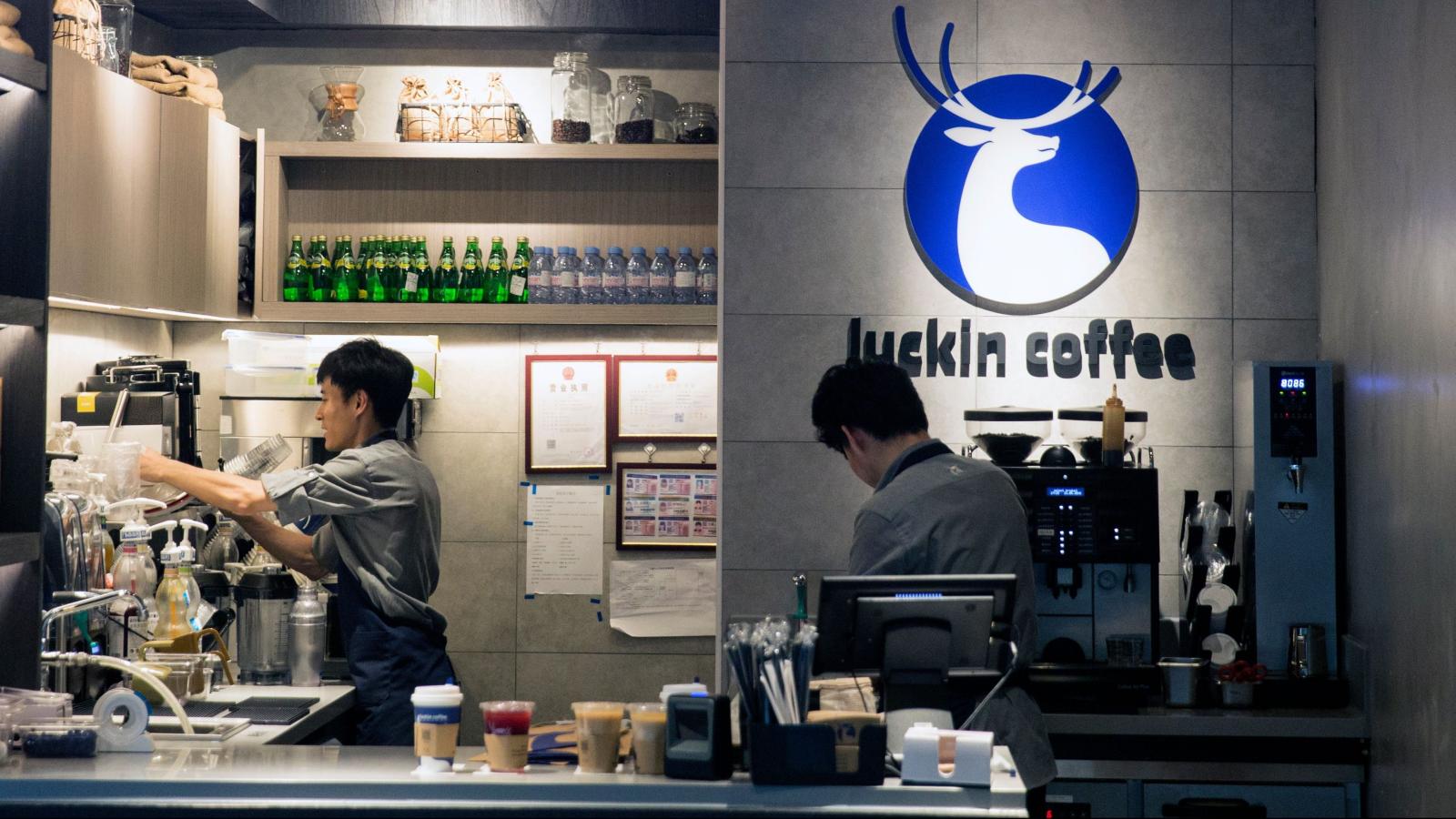
Luckin Coffee disruptive business model
We continue our “China coffee series” with an interesting in-depth analysis made by Antonio Crupi, post-doc fellow at Sant’Anna School of Advanced Studies of Pisa. Under the supervision of Prof. Alberto Di Minin, his research activities are especially focused on China, also thanks to the strong collaboration with the Chongqing University. The studies that Antonio is conducting are mainly concerned about the connection between policies, politics and SME.
In our first article of the series we made an interview with Andrea Lattuada, brand ambassador of Luckin company, a disruptive Chinese coffee startup. In the second one, we analysed the phenomenon of the “rise of coffee in China”, and we also asked questions to the owner of a coffee startup in the city of Chongqing. In this third article, Antonio Crupi writes about the unique business model of Luckin Coffee.

The founder of Luckin, Jenny Qian Zhiya
Luckin Coffee was founded by Jenny Qian Zhiya in November 2017 intercepting the rising demand for fresh ground coffee in China coffee as a lifestyle habit. Even if the market was underdeveloped because of the elevate prices of the product, Lucking started selling coffee at prices 30 percent lower with respect to its direct competitors: Starbucks and Costa, but higher than McDonald’s intended as lower quality. Luckin also offered a technology-driven vending model intertwining online and offline solutions allowing customers to order and pick from the store, have the coffee delivered, or drink it in the store. These two elements – lower prices and fast deliver – configured the start-up’s innovative business model.
Lucking developed and designed a mobile app tailored to Chinese customer’s inclination for cashless transactions and included the entire retail process, including menu, order, payment, and delivery options. Regardless of the pick-up or delivery order, the customers can pay only via the app, so the transactions result entirely cashless. In this way, customers do not have another choice but to download the app, and Luckin, for the first-time client, provides a free beverage making the effort worthy. The business model centered on the app has undoubtedly a strong appeal on Chinese consumers that are digitally oriented, especially the millennials, who opt for using online menus and paying via smartphones. Clients, in fact, have different options to cover the transactions, or through the “coffee wallet”, or through third-party platforms such as Weixin Pay, Union Pay, and WeChat.
Regarding the stores, as stated by Kumar and Bhardwaj (2019), Luckin built an expansive network dividing store into three categories: Pick up stores (87%) – small shop with no or limited seats for on-line order pickups and delivery; Delivery kitchens (8%) – dedicated kitchens for processing and dispatching orders and Relax stores (5%) where clients can sit and enjoy. Mainly stores are located in office buildings, commercial areas and university campuses and their simple decorations and small sizes allow Luckin’s to keep costs lower than competitors.

Two Chinese stars who are testimonials of the company, Zhang Zhen and Tang Wei
Another point on which Lucking centered the efforts regards the delivery time. On the one hand, technology-based orders are smart and simple to make, and on the other hand, Luckin uses the kitchens to quickly complete the orders placed. Hence, using the services of SF express (a Chinese courier company), Luckin can deliver the order in about 18 minutes, offering the coffee for free in case the order is more than 30 minutes late.
According to its technology-driven business model, Luckin implements big data analytics and artificial intelligence to study customer habits and transactions in real-time to better regulate the services strategy, adjust prices levels, and boost customer retention. Moreover, the use of big data allows the company to improve the company’s operational efficiency thanks to standardization processes to rapidly impose the presence in the coffee retail panorama.
A peculiarity offered by Lucking is, indeed, the dynamic pricing consisting of low fixed-price and flexible discounting strategy. The start-up also offers frequent discounts based on the algorithm that analyzes the cost of materials and customer demand and offered adapting the coupons and vouchers to the different consumption preferences. Accordingly, Luckin selling prices result lower than competitors. Also, advertising plays a crucial role in Luckin’s strategies that signed top tier celebrities, Zhang Zhen and Tang Wei, actors and fashion icons in China, as its brand ambassadors. The company also partnered with foreign baristas such as Andrea Lattuada, a former judge of the World Barista Championships, to help build brand reputation and placing its coffee beans and its baristas as among the best in the world. Furthermore, Luckin’s app-based strategy allows the company to access customers’ digital information tailoring appropriate online marketing initiatives.
Written by Antonio Crupi & Marco Bonaglia
RESOURCES
KUMAR, Nirmalya, and Sheetal BHARDWAJ. “Starbucks China: Facing luckin, the local disruptor.” (2019).





